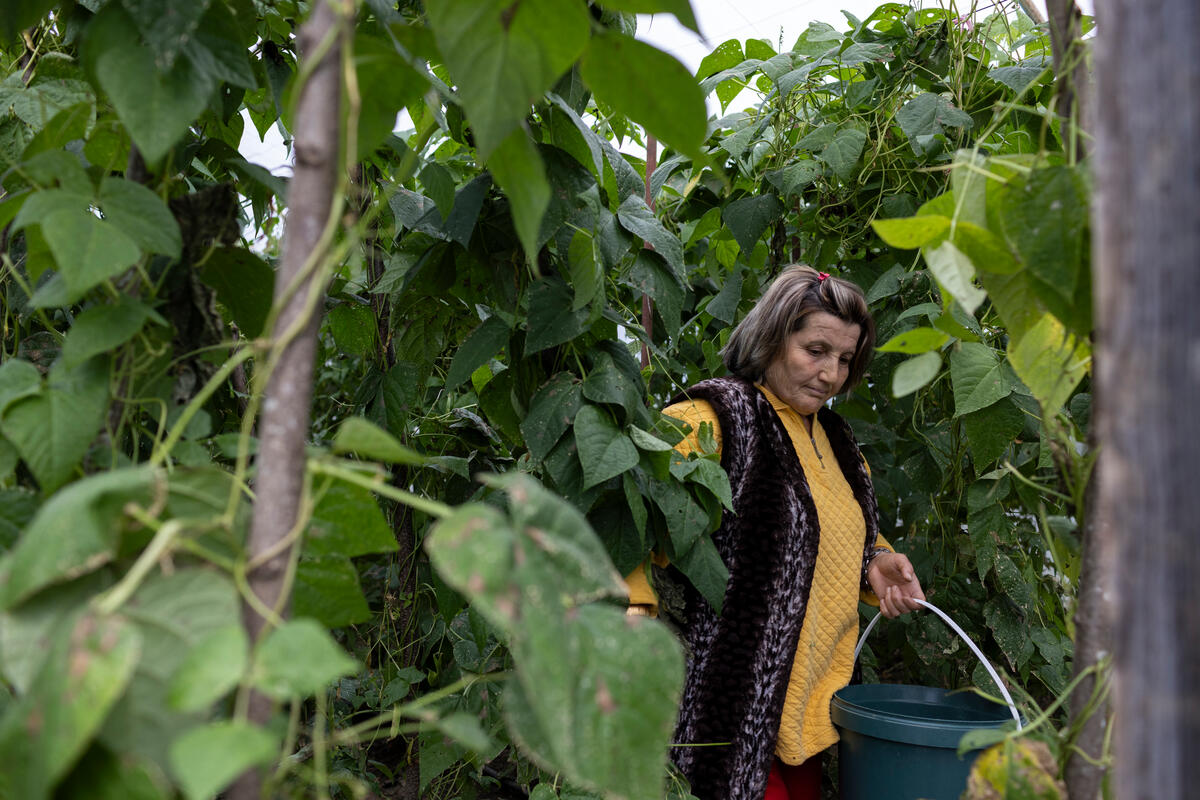Investment in recovery and resilience for Türkiye’s earthquake-hit farmers

Fruit and vegetable farmer picking green beans from the crop in a greenhouse.
©FAO/ Bradley Secker
Two years after devastating earthquakes struck Türkiye, the country’s agricultural sector is taking steps toward recovery.
The recently launched Agriculture sector recovery in Türkiye’s earthquake-affected provinces project aims to provide targeted support to approximately 50,000 people, including farmers, livestock producers, shepherds and agricultural enterprises.
The project is financed by the World Bank with a USD 250 million loan to the Government of Türkiye, through the Ministry of Agriculture and Forestry. The FAO Investment Centre contributed technical expertise in project development.
The project will focus on restoring irrigation systems, providing essential farm machinery, rehabilitating pasturelands, and equipping farmers with climate-smart techniques to ensure long-term sustainability. Farmers in earthquake-affected provinces will be supported to rebuild their livelihoods, strengthen resilience, and prepare for future climate challenges.
In the World Bank’s press release, Humberto Lopez, World Bank Country Director for Türkiye states “The agriculture sector has been a backbone of the economy of the provinces impacted by the 2023 earthquakes,” and stresses that “the newly approved project aims to restore productive capacity in these regions, ensuring the preservation and improvement of jobs and livelihoods of those affected.”
Recovery and rebuilding
The February 2023 earthquakes left a significant toll on Türkiye’s agricultural heartland, known as the ‘fertile crescent.’
Nearly 25 percent of cultivated land in the affected provinces suffered damage, while the economic losses in agriculture exceeded USD 5 billion.
Livestock producers also faced severe setbacks, with many forced to sell their animals to meet immediate needs. Given that these provinces contribute close to 10 percent of Türkiye’s GDP and employ 20 percent of their population in agriculture – many of them women – restoring the sector is essential for economic stability.
Spanning 11 earthquake-affected provinces and adjacent areas – the project is designed to go beyond recovery – it aims to enhance long-term resilience against climate change and future disasters.
Investments will focus on upgrading irrigation infrastructure, transitioning to more efficient and climate-friendly water management practices, and supporting collective service models such as machinery parks.
These efforts will help farmers adopt modern and sustainable farming practices, improving productivity while reducing environmental impact.
Through the strong partnership between the World Bank and FAO Investment Center, FAO deployed technical expertise to support the project’s design, specifically in relation to livestock-investments, led the cost-benefit analysis of the project and guided the preparation of the project’s results framework.
Overall, the FAO Investment Centre contributed to a strategy that aims to support recovery, while strengthening Türkiye’s agricultural sector for the future.
“Recovery must go hand in hand with resilience,” said Dennis Escudero, Economist with FAO Investment Centre, who led FAO technical contributions to the project. “This project will help equip farmers with the tools, knowledge, and support they need to drive lasting change and build more resilient and sustainable food systems.
With implementation led by Türkiye’s Ministry of Agriculture and Forestry, the project will leverage existing national expertise while integrating innovative solutions.
By modernizing irrigation, promoting sustainable pasture management, and facilitating access to climate-resilient technologies, the project aims to empower rural communities and safeguard agricultural livelihoods.
As Türkiye recovers from one of its most devastating natural disasters of the last century, this investment represents a key step toward a more resilient and sustainable agricultural sector.
